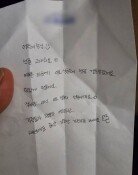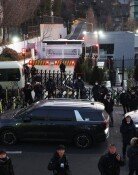Kim Jong Ils nuclear war threat
Uriminzokkiri, an Internet site operated by North Koreas Committee for the Peaceful Reunification of the Fatherland, said Friday that war on the Korean Peninsula is a matter of time. If war breaks out, it will lead to nuclear warfare and not be limited to the Korean Peninsula," it said. If Pyongyang wants to threaten nuclear war, it should not use the term uriminzokkiri, which means by our nation, in Korean.
The Norths previous threats included statements that it was ready for nuclear war or would bring the fiery cloud of nuclear war. Friday, however, saw Pyongyang specifically mention the possibility of a nuclear conflict for the first time. It could be just threatening rhetoric but the possibility that the North is developing nuclear weapons to use them cannot be ruled out. Since the U.S. dropped nuclear bombs on Japan in 1945, no nuclear weapon has been used in war because all countries know of the dreadful consequences. The Norths nuclear war threat is a challenge not only to South Korea but also to all of humankind.
The U.S. and China held intensive talks for three days in Beijing on bilateral issues, including the situation on the Korean Peninsula. The starting point of the dialogue was Chinese State Councilor Dai Bingguos recent visits to Seoul and Washington. Outgoing New Mexico Gov. Bill Richardson is also visiting the North at Pyongyangs invitation. If the North really wants to admit its wrongdoings of nuclear development and an armed attack on South Korea, it would not put a damper on dialogue efforts with a nuclear threat.
When Dai was in Pyongyang, the North is known to have rejected all five preconditions of the South, the U.S. and Japan for the resumption of the six-party denuclearization talks. Nevertheless, China in bilateral talks with the U.S. reportedly reiterated its call for the dialogue. If Beijing continues to turn a blind eye to Pyongyangs nuclear development, it could lead to a domino effect of fueling a nuclear arms race in East Asia, which in turn poses a serious threat to Chinas national security.
The North has threatened to strike the South if the South Korean military conducts a live-fire drill near Yeonpyeong Island. Experts warn of additional provocations by Pyongyang. Seoul should not be taken by surprise again as it was with Yeonpyeong. Be it an artillery attack or localized warfare, the South should thoroughly retaliate against any provocation to deter the communist regime from considering provoking the South again. That is how Seoul can prevent the worst-case scenario of the Kim Jong Il government escalating its provocations and ultimately using nuclear weapons. A fundamental measure to prevent the North from developing a weapons-grade nuclear arsenal might be changing its hereditary power succession.







